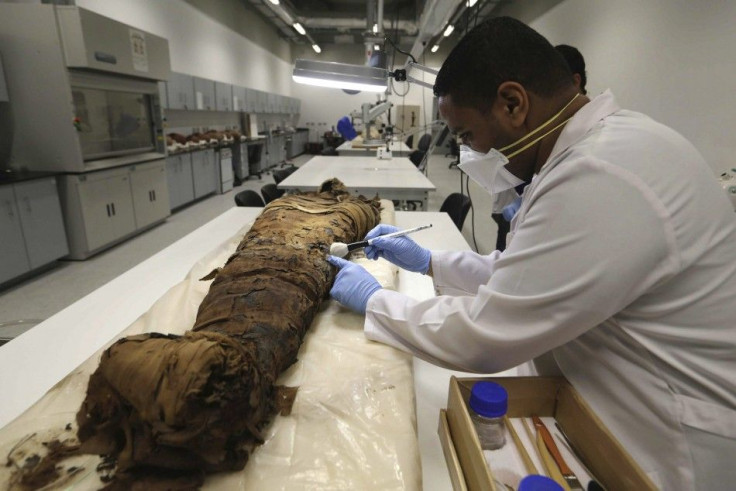Ancient Greek Tomb Of Alexander Era: Mystery Deepens Over The Skeletons And Bones Found

Considerable mystery surrounds the disclosures about a vast tomb in Greece, built during the period of Alexander the Great, with archaeologists now claiming that they have found ancient remains of five people. Ever since the tomb was discovered in 2014, there has been intense speculation that it may have been built for Alexander the Great, for his mother or a General in his military. But the disclosure of archaeologists on Monday that they unearthed bones of five people, including a woman above the age of 60, a newborn baby, two men aged between 35 and 45, overturned many of the hitherto held assumptions. The ruins of another body, believed to be of an adult, could not be verified in terms of its age.
Intriguing Excavation
The ancient tomb dates back to 300-325 BC and was located at the Kastas hill in Amphipolis, reported The Telegraph. Alexander died in 323 BC, at the age of 32, in Babylonia, and his body was supposed to have been transported to Alexandria for burial. Inside the tomb, archaeologists also found some marble statues of sphinxes and a mosaic pavement that depicted the abduction of Persephone by Hades, who was the king of the underworld.
According to the experts, the bones of one of the men had cut marks, possibly from a sword or a dagger, adding a new twist to the occupants of the necropolis. A Daily Mail report said there is also speculation whether the woman buried at the Amphipolis site was Roxana, Alexander's Persian wife. It quoted the Culture Ministry, which said the woman was approximately 5ft 1inch tall.
Great Warrior
Born in Pella, the ancient capital of Macedonia in July 356 BC, Alexander, despite of his short life that ended at the young age of 32, became world famous for his heroic military expeditions across the Persian territories of Asia Minor, Syria and Egypt. He came and literally conquered the lands he surveyed. The warrior's greatest victory was at the Battle of Gaugamela, now in northern Iraq, in 331 BC. His triumphant treks across Persian territories made him known as Alexander the Great. After the battle in Gaugamela, Alexander led his army further 17,800 km and found 70 cities. The expedition led to Alexander creating an empire that stretched across three continents-- from Greece to Egypt and further to Indian Punjab.
Creating one of the largest empires in the world with territories that stretched from the Mediterranean to the Indus, Alexander became a military legend of all times. But the death of Alexander also unleashed a bitter succession war to take control of the empire. During the war, Alexander's mother, widow, son and half-brother were murdered near Amphipolis. Now the mystery is whether the tomb in questions is housing those bodies.
(The writer can be reached with feedback at kalyanaussie@gmail.com)





















